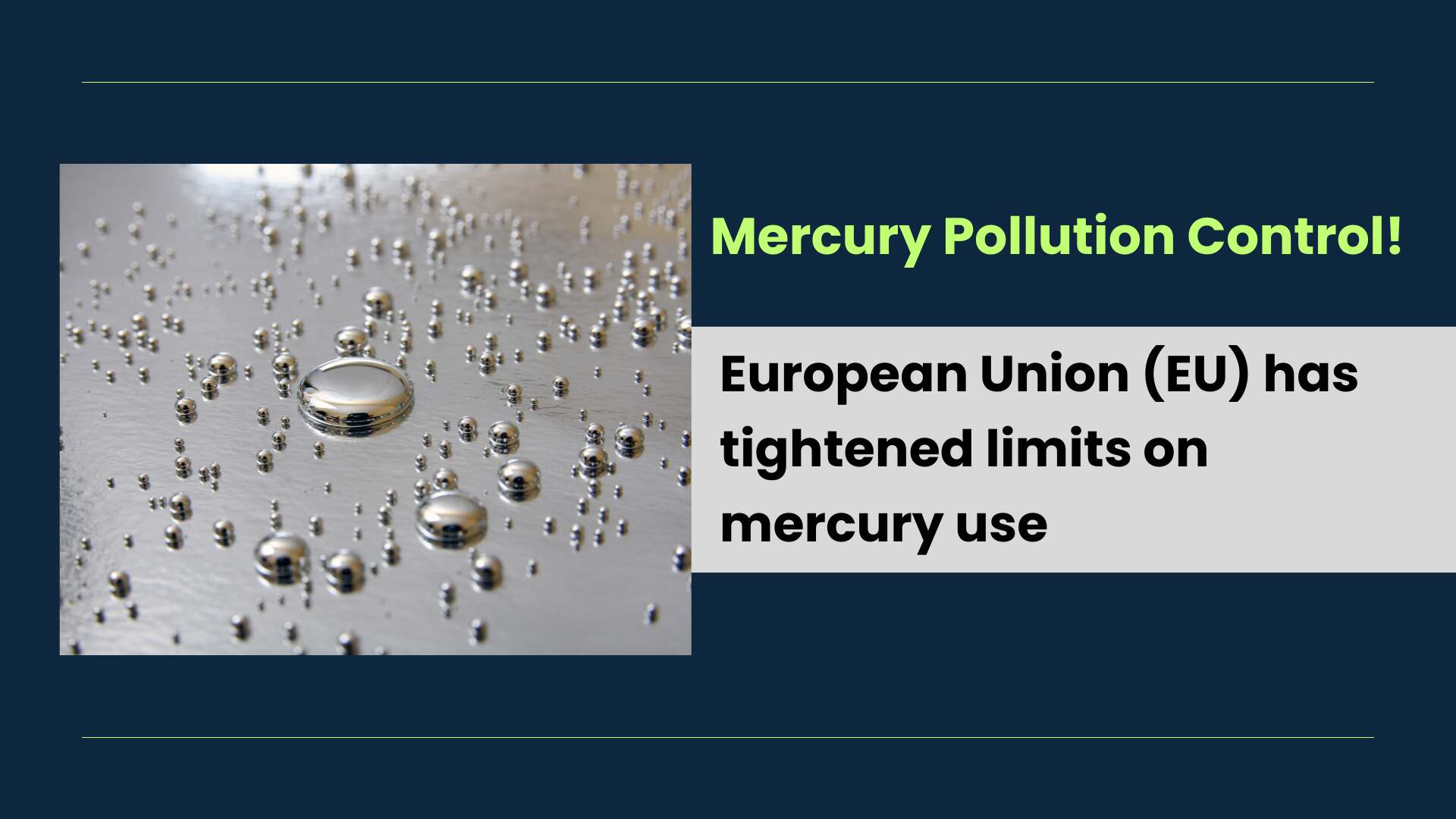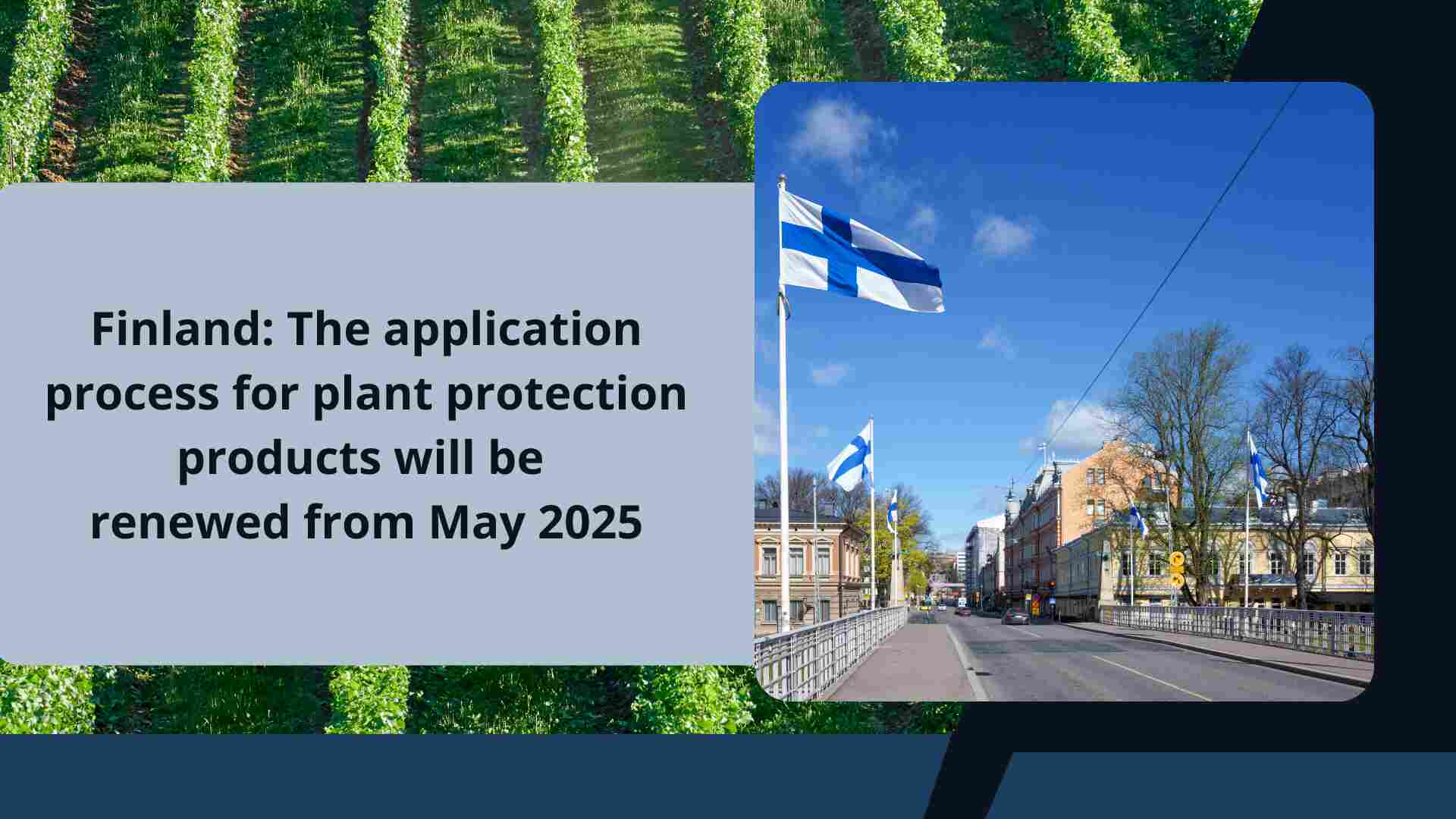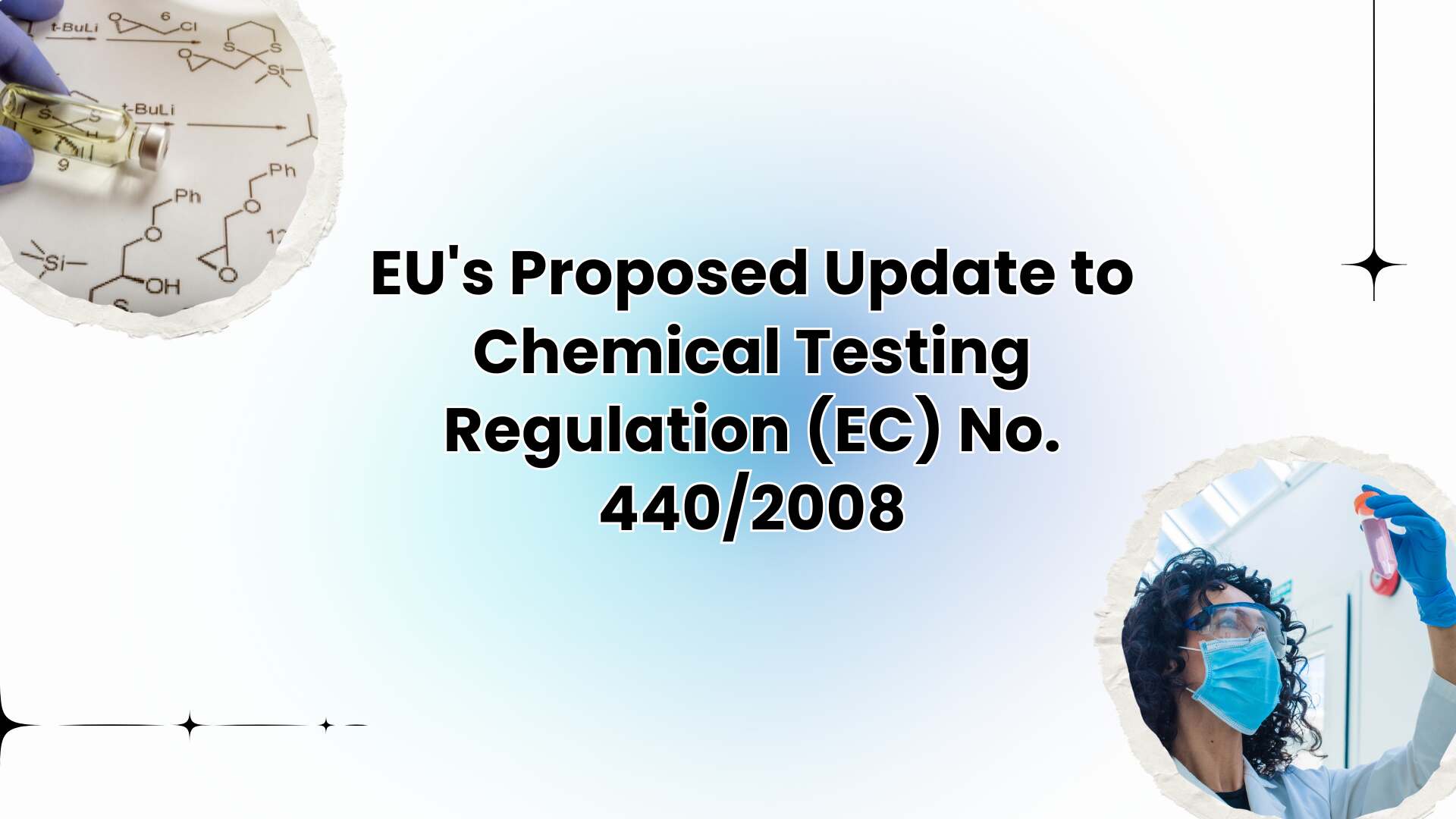The European Union (EU) has tightened limits on mercury, an extremely hazardous metal, in a major step to protect public health and the environment. On July 30, 2024, the updated Mercury Regulation went into force with the intention of reducing the use of mercury throughout its entire lifecycle, from mining to disposal.
Mercury has long been a hazard to the environment because of its adverse effects on the kidneys, immune system, brain, and lungs. Serious health dangers arise from its buildup in the food chain, especially in fish. Recognizing the urgency of the issue, the EU has been at the forefront of combating mercury pollution for the past two decades.
Specific Measures Mercury Regulation in European Union :
- Export Prohibition: Bans the export of mercury and mercury compounds, as well as the manufacture, export, and import of various mercury-added products (MAPs).
- Industrial Processes: Forbids using mercury or its compounds as catalysts and electrodes in industrial processes.
- Dental Amalgam: Phases out and bans the export of dental amalgam by January 1, 2025. Limited derogations are granted to adapt national healthcare systems until June 30, 2026.
- New Uses: Prohibits new uses of mercury in industry and products unless significant environmental or health benefits are demonstrated.
- Mercury Waste Management: Ensures safe management of mercury waste.
- Lamp Ban: Bans the manufacture and export of six additional mercury-containing lamps by December 31, 2025, or 2026 (depending on lamp type)
- Minamata Convention: In July 2023, the EU adopted a delegated regulation aligning with the Minamata Convention, prohibiting the manufacture, import, and export of eight additional mercury-containing products.
This landmark legislation underscores the EU’s commitment to the European Green Deal and its goal of achieving zero pollution. The organization is establishing a worldwide standard for environmental preservation and public health by acting effectively against mercury.
With the implementation of these severe requirements, the EU makes a significant contribution to ensuring a better world for future generations.









